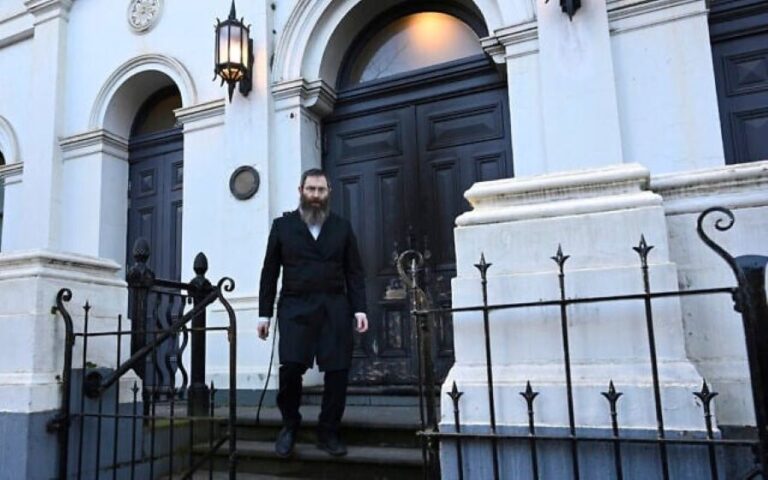The coalition reeled on Wednesday after suffering two defeats in the Knesset when two bills brought by the opposition were approved, one of them after a Ra’am MK broke with the coalition to vote with the opposition.
Ra’am MK Mazen Ghanaim voted for the first bill, proposed by the members of the Arab Joint List, to establish a hospital in the Arab town of Sakhnin. Ghanaim lives in Sakhnin and served as its mayor from 2008 -2018.
His vote caused an uproar in the Knesset, as his fellow coalition members booed him.
The second bill, proposed by UTJ MK Yaakov Asher, expands the definition of racism to include incitement against Chareidim, rendering it a criminal offense. It passed in its first reading, a major blow to Justice Minister Gideon Sa’ar who opposed the bill, claiming that the law defines racism only in cases of prejudice due to color of skin or ethnic origin and the Charedi sector cannot be differentiated by color, race, or national ethnic origin. However, according to legal experts whom Asher consulted, there are no legal issues with amending the law to include protection against the Chareidi sector.
Asher introduced the bill by stating: “Recently we’re witness to an increasing phenomenon of racist incitement against the Chareidi sector. The incidents are particularly serious when the incitement comes from public officials with the goal to divide the people in order to garner political gain, while harming an entire sector and the unity of the people.”
Following the passing of the bill, Asher said: “Justice is seen and done. Today, the Chareidi sector received the hope of a future in which its blood is no longer hefker and a million Chareidi citizens won’t be subject to harassment by inciting politicians.”
Yamina MKs are furious at Ra’am MK Ghanaim for voting with the opposition and they sent a message to Prime Minister Naftali Bennett that they won’t tolerate members of the coalition acting independently and violating coalition discipline, Kan News reported.
However, despite the opposition’s successes, both bills must be approved in another three readings before becoming law, a highly unlikely prospect.
(YWN Israel Desk – Jerusalem)












4 Responses
Wouldn’t it work both ways If chareidim harass an idf soldier?
a major blow to Justice Minister Gideon Sa’ar who opposed the bill, claiming that the law defines racism only in cases of prejudice due to color of skin or ethnic origin and the Charedi sector cannot be differentiated by color, race, or national ethnic origin.
Well, yes, of course. That is the entire point of changing the law! You don’t change the law when it already says what you want it to! You only change it when it doesn’t. So what was his objection?
However, according to legal experts whom Asher consulted, there are no legal issues with amending the law to include protection against the Chareidi sector.
Again, of course! What is the chidush here? How can there ever be legal issues with amending a law? If the law used to say you stop on red and go on green, and now the Knesset says let’s reverse that, then now the law is you stop on green and go on red. And if it says you stop on both red and green, and only go on yellow, then that is now the law. It’s as simple as that. What legal issues could there be with it?
Of course in the USA such a law would be unconstitutional, because most of what Israeli law calls “incitement” does not fit the definition of that word in US law, and is in fact protected speech. But the same is true for such speech against racial or ethnic groups. So not just the amendment but the original law as well would be invalid. Amending it wouldn’t make it any more invalid.
What a comical scene. MKs acting like they should.
But I hope the irony isnt lost in any of you. In the “Yidishe Medinah” people are celebrating about the basic rights of Jews. Its beyond comprehension.
A shande
Baalei musar ask how can the Torah legislate love and friendship as well as לא תחמוד? These are after allחובות הלבבות.In our case the legislation לרבות תלמידי חכמים is a זירוז which is always helpful and appropriate and is a function of civil society. It is a קידוש השם.